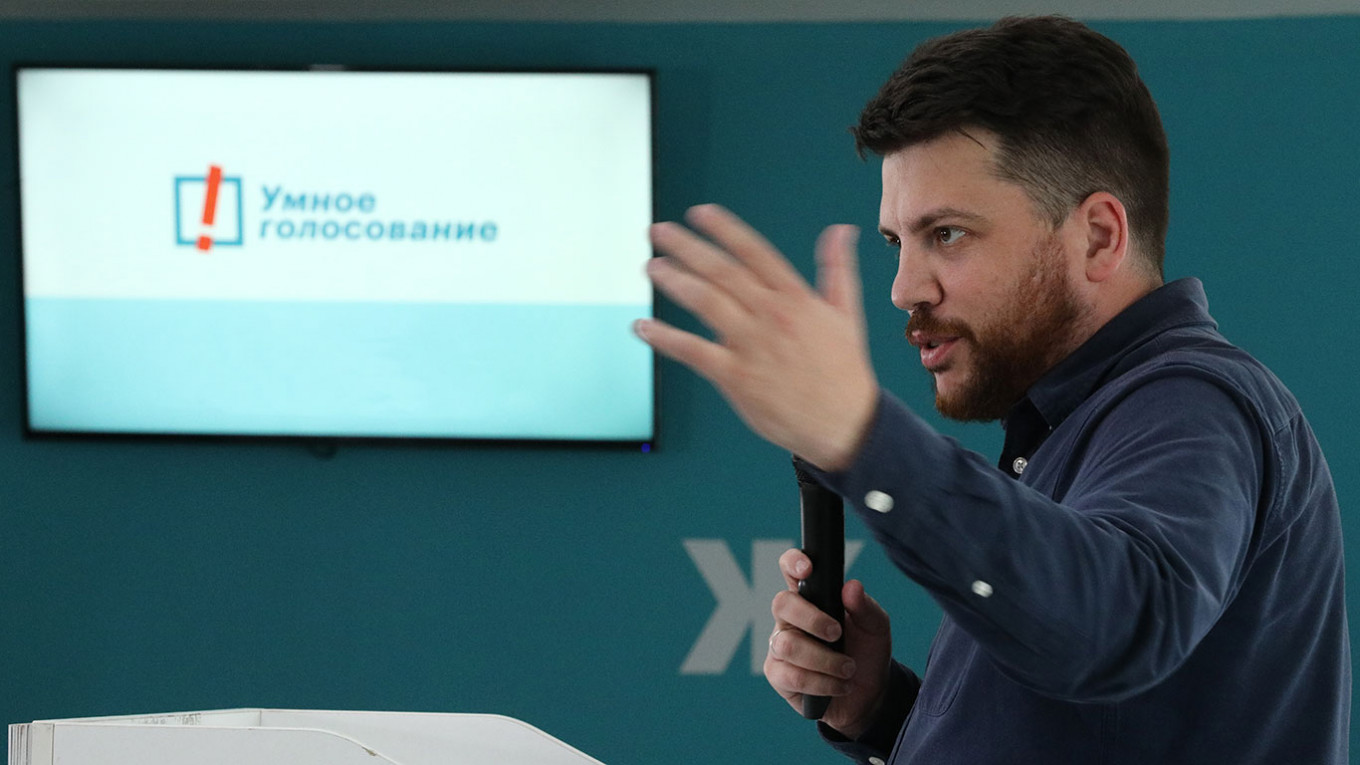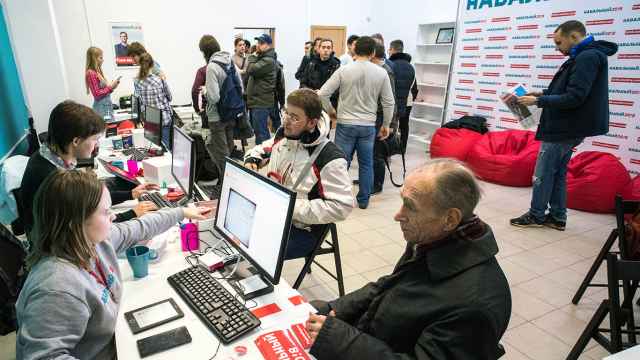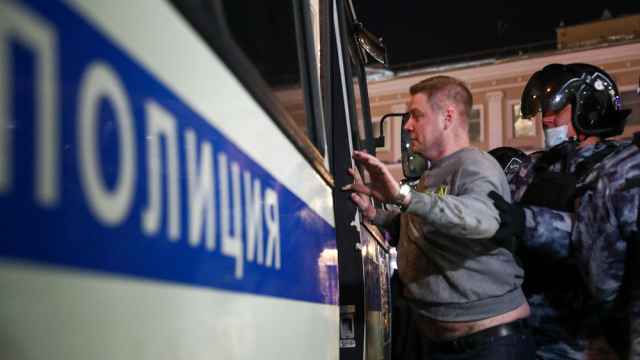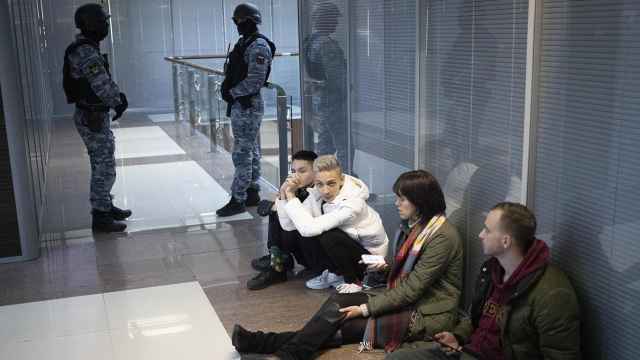Russian authorities have blocked a website that promotes jailed Kremlin critic Alexei Navalny’s anti-ruling party voting strategy in this month’s parliamentary elections.
Senior Navalny aide Leonid Volkov said state internet regulator Roskomnadzor started blocking the website for the “Smart Voting” strategy that seeks to unseat pro-Kremlin ruling party incumbents by rallying support behind their most promising challengers in the Sept. 17-19 vote.
In a statement to AFP, state communications watchdog Roskomnadzor said that access to the website votesmart.appspot.com had been blocked in Russia "because it is being used to continue the work... of an extremist organization."
Volkov said that the website had been “the last of the sites of Navalny's team that were not blocked in Russia.”
Roskomnadzor barred 49 websites linked to Navalny earlier this summer and has ordered social media platforms, YouTube, Apple and Google to remove Navalny-linked accounts and apps from their platforms.
Kremlin critics say the blockages are part of what they call a widening crackdown on dissent and independent voices ahead of the local and federal elections.
Over the weekend, Russian media reported that a Moscow court banned Google and Yandex from displaying search results for the phrase “Smart Voting,” while a social media bot appeared in southern Russia mimicking “Smart Voting” under a similar title.
Volkov urged supporters to download the team’s “Smart Voting” app, which is expected to release a list of the candidates it supports closer to the election date.
“Get ready for a real battle for freedom of receiving and distributing information,” Volkov wrote on social media.
“[Russian authorities] really dream of one thing — that people do not hear our recommendations for a consolidated protest vote. We can win this fight,” Volkov added.
Navalny and his movement — the country's most vociferous grassroots anti-Kremlin force — are facing an increasingly bleak outlook within Russia.
A Moscow court designated Navalny’s organizations as “extremist” this summer, formally banning them and their activities and putting supporters at risk of criminal prosecution. Much of Navalny's political and activist infrastructure has moved abroad to avoid prosecution and raids, while several top Navalny associates have fled Russia after receiving criminal sentences on a range of charges.
Navalny himself is serving a 2.5-year prison sentence for parole violations in an old fraud case he says is trumped up. He faces up to three more years in prison after authorities filed new charges against him of "creating a nonprofit organization that infringes on the identities and rights of citizens."
AFP contributed reporting.
A Message from The Moscow Times:
Dear readers,
We are facing unprecedented challenges. Russia's Prosecutor General's Office has designated The Moscow Times as an "undesirable" organization, criminalizing our work and putting our staff at risk of prosecution. This follows our earlier unjust labeling as a "foreign agent."
These actions are direct attempts to silence independent journalism in Russia. The authorities claim our work "discredits the decisions of the Russian leadership." We see things differently: we strive to provide accurate, unbiased reporting on Russia.
We, the journalists of The Moscow Times, refuse to be silenced. But to continue our work, we need your help.
Your support, no matter how small, makes a world of difference. If you can, please support us monthly starting from just $2. It's quick to set up, and every contribution makes a significant impact.
By supporting The Moscow Times, you're defending open, independent journalism in the face of repression. Thank you for standing with us.
Remind me later.






